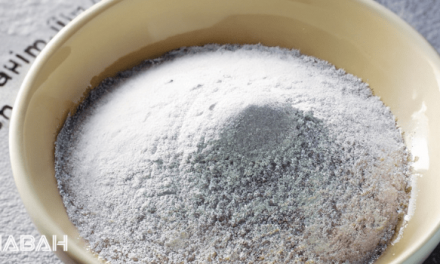Ketchup is one of the most ubiquitous condiments across the globe, with 97% of households in the United States having a bottle in their fridge. This sweet and tangy tomato-based sauce enhances flavors when paired with dishes like burgers, fries, meatloaf, and more.
However, as a staple condiment used widely across diverse culinary traditions, ketchup must cater to a broad spectrum of dietary requirements and sensibilities. For devout Muslims seeking to comply with Islamic dietary regulations, an important question arises around one of the world’s most popular ketchups – is Heinz ketchup halal?
Factors That Determine Whether Ketchup is Halal
Halal guidelines outlined in Islamic scripture dictate that various aspects must be fulfilled for food to be considered permissible. Here, we analyze the main compositional elements and production processes that affect ketchup’s halal status:
Core Ingredients – Tomato Paste, Sugar, Vinegar
Ketchup’s distinctive sweet and tangy flavor profile relies first and foremost on getting the balance of core ingredients right. Apart from tomato paste, which forms ketchup’s rich red base, sugar and vinegar are crucial for reaching the desired blend of sweetness and acidity.
Most Islamic scholars agree that tomato paste and sugar are generally halal. However, the source of vinegar requires closer scrutiny. Spirit vinegar and distilled white vinegar may be produced via methods involving alcohol derived from grains or wood pulp. Malt vinegar can also potentially contain barley-based alcohol from fermentation. Hence, it is vital to ascertain if the vinegar used in ketchup is completely alcohol-free through halal certification or contacting manufacturers directly. Without this assurance, the ketchup cannot be deemed halal.
Other Secondary Ingredients – Onions, Garlic, Spices
Apart from the core components above, various secondary ingredients are used in ketchup to enhance flavor, texture and preservation. These include onions, garlic, natural flavorings like paprika and cloves, corn syrup or molasses for sweetness and body, and preservatives like potassium sorbate.
The onion and garlic present another dilemma – some Islamic scholars prohibit consumption of Allium vegetables including onions, leeks, shallots and chives. This stems from the Hadith where Prophet Muhammad (PBUH) is described as avoiding eating onions or garlic before going to the mosque, over concerns the smell may disturb other devotees during prayers.
Yet other experts state that small amounts of onion powder solely added for flavor, rather than for their vegetable properties, should be allowed. As Heinz ketchup contains minimal quantities of onion and garlic-derived ingredients, most authorities classify this aspect as permissible, based on established principle of tolerating small volumes of otherwise prohibited components for certain maslahat (public interests) under Islamic jurisprudence.
Manufacturing Process Risks
Even if all ketchup ingredients are confirmed halal, Islamic guidelines necessitate analyzing the entire manufacturing process from raw materials to bottle for potential contamination or alcohol traces.
Production risks include shared equipment with non-halal lines, improper cleaning between batches allowing residue transfers between halal and non-halal batches, alcohol-based cleaning agents especially for sterilizing equipment, cross-contamination during storage and transport, or dog paw prints on containers during quality checks.
To mitigate these risks, halal certification audits evaluate the stringency of protocols from ingredient sourcing to manufacturing to packaging and labelling. Annual re-audits also help ensure standards are continually maintained over time. Without affirmative certification of production line hygiene and halal integrity at every step, ketchup cannot be declared fully permissible.
Varying Fatwas and Guidelines Among Islamic Bodies
Owing to the spectrum of interpretation among various Islamic regulatory bodies, fatwas regarding ketchup’s halal compliance also show some diversity. We outline key perspectives below.
General Guidelines from Prominent Bodies
Multinational halal certification boards like the International Halal Integrity Alliance (IHIA) provide generalized regulations for condiments:
- Verify halal status of all ingredients
- Ensure production process adheres to halal protocols
- Request halal certificates from ingredient suppliers
- Only use halal-certified preservatives and stabilizers
For bulk condiments manufactured in shared facilities, they recommend dedicated halal production lines. Failing this, comprehensive halal changeover procedures prior between halal and non-halal runs are advised, coupled with stringent cleaning protocols and residue testing.
IHIA and affiliated Islamic organizations stop short of issuing definitive fatwas on specific brands of ketchup. Consumer discretion based on personalized halal standards is recommended when absolute verification across entire supply chains proves impossible.
Fatwas from Individual South Asian Muftis
Several independent muftis especially from South Asia have voiced more explicit stances on ketchup from a Shariah law lens.
Pakistan-based Islamic scholar and mufti Mohammad Abu Zafar states on several online halal discussion forums:
“My ruling is that in the Indian Subcontinent’s perspective, where Heinz Tomato Ketchup is commonly used as a condiment rather than as a standalone food substitute, then if all other foods it accompanies are halal, consuming small amounts of ketchup should be allowed, even if the vinegar’s source has some doubt or alcohol traces. This flexibility applies only if halal options are unavailable, as per established principles in Islamic fiqh.”
This denotes a pragmatic approach recognizing unique culinary contexts where prohibition may be disadvantageous, though stricter abstinence from alcohol-containing foods takes precedence where alternatives exist. Similar allowances stem from broader jurisprudence principles classifying food components comprising sulphites like vinegar which could ferment as ‘mushbooh’ (doubtful) rather than outright haram, especially when present in negligible volumes (<0.5%) that do not intoxicate.
Contrastingly, conservative Deobandi positions adopted by certain mosques and authorities in Western nations advise strict avoidance of ketchup containing doubtful ingredients – disallowing it overrides any contextual flexibility. Hence specific institutional or community affiliations motivate whether ketchup is deemed halal.
Heinz Ketchup – Halal Status and Sourcing Implications
When evaluating major ketchup brand Heinz specifically, what factors determine halal suitability from an Islamic perspective?
Heinz Production Standards
Per Heinz U.S. Customer Service, their signature Tomato Ketchup contains a mere 2% onion powder among other natural flavorings, ostensibly not falling under prohibitions against larger Allium vegetable quantities. Sugar rather than corn syrup provides the bulk sweetness.
Critically, no information is offered regarding alcohol traces in vinegar used or manufacturing hygiene protocols. This lack of supply chain transparency and quality control verification means Muslims striving to avoid even minute amounts of alcohol should refrain from Heinz – halal integrity cannot be definitively established.
Sourcing Alternatives
Seeking out halal-labelled ketchup varieties represents the ideal option for observant Muslims wishing to enjoy ketchup while adhering to dietary codes. Numerous alternatives now exist, including:
- Safa Halal ketchup made under halal protocols in Australia
- Muslim’s Choice ketchup with halal certification from IFANCA in the United States
- San Marco Ketchup approved by Central Islamic Committee of Thailand
Where halal-certified ketchup remains unavailable or scarce, some leniency may be allowed if it solely constitutes a minor accompaniment rather than substantial ingredient in meals. But stricter Islamic authorities underscore avoiding potentially alcohol-laced ketchup completely if substitutes exist, aligning with Quranic advice to refrain from unclear or doubtful substances. Exercise informed personal discretion depending on specific religious interpretations followed.
Conclusion
Ketchup’s global popularity spanning continents makes determining its suitability for Islamic diets important yet complex, requiring careful analysis of both composition and manufacturing processes. Examining ingredients like vinegar and additives offers useful clues, but verifying production hygiene protocols through halal certification remains the definitive test for Shariah compliance.
For mainstream brands like Heinz, inadequate transparency around these facets means Muslim consumers seeking to strictly follow halal guidelines should consider alternatives where possible. An increasing array of substitutes produced under established halal regulations now fill this need. And where flexibility around tiny clarified amounts of alcohol is deemed acceptable by certain Islamic bodies, this only applies when no verified options exist.
By understanding ketchup’s potential pitfalls as well as healthier substitutes, Muslim communities can progress towards broader inclusion within multicultural food environments, without compromising centuries-old dietary traditions or religious needs.
Frequently Asked Questions: Is Heinz Tomato Ketchup halal?
Yes, Heinz Tomato Ketchup is halal certified.
What are the main ingredients in Heinz Tomato Ketchup?
The main ingredients in Heinz Tomato Ketchup are tomatoes, vinegar, sugar, salt, and a blend of spices and flavors.
Can individuals of any religion consume Heinz Tomato Ketchup?
Yes, Heinz Tomato Ketchup can be consumed by individuals regardless of their religion as it is halal certified.
Are there different types of Heinz Tomato Ketchup available?
Yes, there are various types of Heinz Tomato Ketchup available, including organic, no sugar added, and flavored varieties.
Can Heinz Tomato Ketchup be used as a flavoring in different cuisines?
Yes, Heinz Tomato Ketchup can be used to add flavor to a wide range of foods, including burgers, fries, dipping sauces, and various recipes.
What is the difference between tomato sauce and tomato ketchup?
The main difference is that tomato ketchup typically contains additional ingredients such as sugar, vinegar, and spices, giving it a unique flavor profile compared to plain tomato sauce.
Is Heinz Tomato Ketchup made from alcohol-based vinegar?
No, Heinz Tomato Ketchup uses distilled vinegar, which is made from grain and does not contain alcohol, making it suitable for consumption by individuals with dietary guidelines.
Can individuals with dietary restrictions consume Heinz Tomato Ketchup?
Yes, individuals with dietary needs can consume Heinz Tomato Ketchup as it does not contain any haram ingredients and is suitable for a wide range of dietary preferences.
Where can I find information about the halal certification of Heinz Tomato Ketchup?
For information regarding the halal certification of Heinz Tomato Ketchup, you can visit muftisays.com or check the product packaging for the halal symbol.
What gives Heinz Tomato Ketchup its distinctive sweet and tangy flavor?
Heinz Tomato Ketchup gets its unique flavor from a combination of tomatoes, vinegar, sugar, and a blend of spices, giving it a balance of sweetness and tartness that sets it apart from other condiments.





